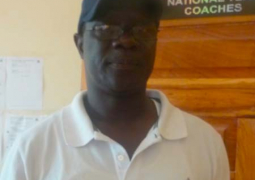Of course, we have many times in the past expressed our total disappointment with the way in which some public offices and officials in this country treat the private media regarding the dissemination of information to the general public.
What we must not accept is segregation of any kind, at any level of government or the public service in dealing with the media in general. The private media have in the recent past been subjected to some sort of discrimination as against the public media.
Most public institutions seem to be in the habit of putting the private media last in all their dealings. As we see it, most public institutions regard the public media as the only medium through which information can be disseminated. Is this an avoidance of the private media or is it that the private media have done something wrong?
Every now and then, public officers walk into our offices with press releases relating to programmes that the private media should have been invited to cover. And what next do we see or hear? Invitations for coverage are extended to the public media only. In some instances, they give us a last minute call. What public offices should understand is that we in the media report factual information to keep the general public abreast of all that is happening in the public and the private domains. As journalists we should be allowed and indeed encouraged to perform our duties as the nation's watchdogs. It is not at all fair to organise conferences and omitting, whether inadvertently or deliberately, to invite the private media. Public officials are paid with taxpayers' money and they should therefore be held publicly accountable. Keeping the private media from events and from relevant information may not be the best way of shirking that public accountability. Such an approach merely arouses suspicion and speculation.
There is no denying the fact that it is through our activities that the world gets to know what is happening, where, why and by whom. This can however be only possible with the full collaboration of all public and private institutions in this country.
These people are in their positions to serve the public and not their own selfish interests. They should not see journalists as enemies when they are engaged in dubious deals and as friends when they have promotions or other reasons for celebration. Recent indications from some public officers suggest that public institutions only approach the private media when they have information that will please some people in some way. A stop should be put to this lob-sided practice. We as journalists are not here to please any particular person. We believe in neutrality, objectivity and impartiality, and as such we cannot be in a position to countenance media discrimination in any manner or form. It is our position, which all lovers of democracy and fairness would support.
"Everything secret degenerates . nothing is safe that does not show how it can bear discussion and publicity."
Lord Acton


